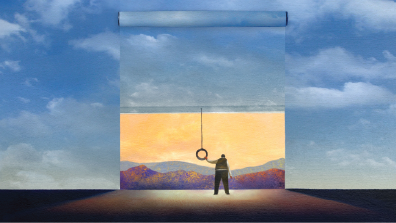
Article by
Quran says:
Truly man was created very impatient;- Fretful when evil touches him; And niggardly when good reaches him;
- (70:19,20,21)
Humans are born with flaws. How can they make a sound judgement and make a good decision? There are errors in their decisions. Daniel Kahneman - Princeton Professor in his book “Noise: A Flaw in Human Judgment ” says that humans are unreliable, judgments can vary from person to person, even when people are in the same role and supposedly following the same guidelines. Mood and the weather can change one person’s decisions from occasion to occasion. He termed it “Noise”.
A study examining 1.5 million court cases discovered that noise often impacts judges’ decisions. Judges tend to pass harsher sentences on days following their local football team losses. In the same vein, they become more lenient when their teams emerge victorious. Evidence shows that sentencing decisions vary substantially for the same crimes. Discrepancies can be observed in the decisions of the same judge, as well as in the decisions of different judges having similar cases.
Mr. Kahneman and his colleagues propose three types of remedies. Noise Audit - it is to carefully observe variability in decisions under similar circumstances and measure it. Noise Hygiene - it suggests breaking a matter into small units and dealing with them independently. It will protect you from external forces that introduce variabilities to your decisions. Noise Optimization - it is to replace human judgement with formal rules—known as algorithms—that use the data about a case to produce a prediction or a decision.
Adam Grant - Wharton Professor has a different approach to the same problem. He advocates rethinking mindset as an alternative to thinking skill set. In his book “Think Again: The Power of Knowing What You Don't Know”, he argues that our tendency to cling to our beliefs is ineffective. Our failure to change our ideas once we have established them. No matter the knowledge and experience individuals possess, they can’t avoid logical errors in their thinking process. These include unfounded opinions, external influences, assumptions, and other subjective perceptions. Our natural tendency to rely on these distracting cognitive resources leads us to poor decision-making, inflexibility, inability to hear others and be heard, and closed-minded attitudes as well. The world is always changing, and if we are not willing to change with it, we will fall behind.
Mr. Grant says every time we think or talk, we tend to fall into the role of one of these characters: a preacher, prosecutor, or politician. Preachers are only interested in pushing their own ideas. They impose their beliefs on others in an attempt to protect or popularise them. Prosecutors are eager to win every argument. They will relentlessly lash out at anyone whose opinions don’t align with their own. Politicians, in contrast, want to be people pleasers. They long for approval but don’t necessarily see the point in finding objective truth. When you take on any of these roles, you deny the importance of finding the truth through engaging with others. What you are really interested in is attacking dissenting views, defending your opinion, making peace, or simply winning an argument.
He suggests one more role that may help us to realise our cognitive potential i-e Scientist. Being a scientist means conducting experiments, testing hypotheses, abandoning old beliefs, and embracing new truths. It is akin to being skeptic. Knowledge isn’t frozen in time. Things we deemed correct 20 years ago now may seem outdated. When we acquire knowledge, we either trust what we learn or retain a skeptical attitude. Skeptics focus on things that are left out instead of things that are in focus. This approach helps keep their minds open and promotes rethinking
It’s human nature to make plans and to achieve our goals we tend to set boundaries. In the best-case scenario, they help us achieve our goals. More often, however, they give us tunnel vision and prevent us from seeing better possibilities. What’s even worse, if our plan doesn’t go the way we envision, we usually start spending more time and resources to fix things. Alternatively we could ask ourselves a simple question: “Was this a good plan?” To question your plan instead of executing it at any cost is the essence of rethinking. Determination to success is great, but it has the opposite result if it leads to mental rigidity.
Are you fixing things or asking questions about plans??
 Monthly "Azeem English Magazine", launched in 2000, records the information about diverse fields like mental health, literature, research, science, and art. The magazine's objective is to impart social, cultural, and literary values to society.
Monthly "Azeem English Magazine", launched in 2000, records the information about diverse fields like mental health, literature, research, science, and art. The magazine's objective is to impart social, cultural, and literary values to society.
+92 51 88 93 092
First Floor, RAS Arcade, Eidhi Market, Street#124, G-13/4, Islamabad, Pakistan, 44000.